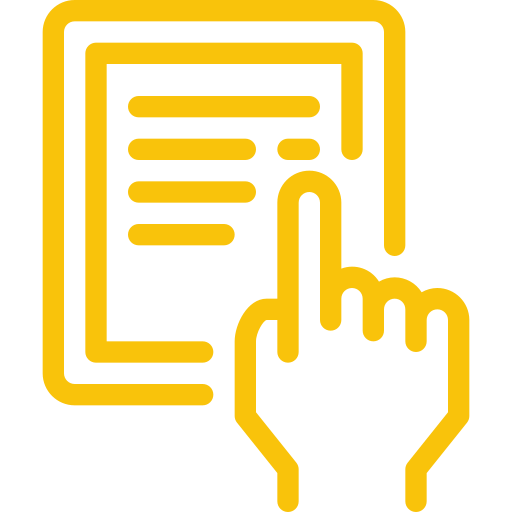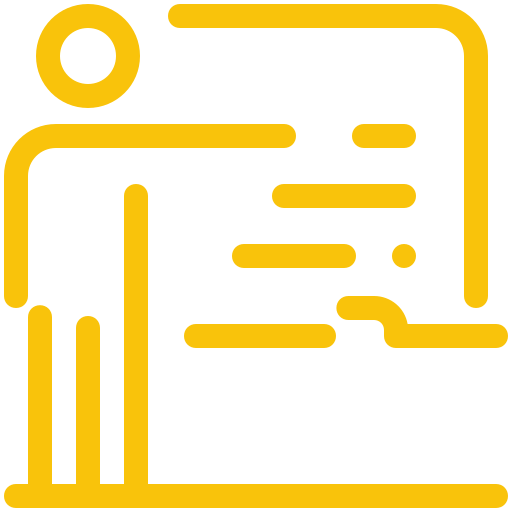Think about the last time you tried something new. It was likely a bit daunting, right? Now, apply that feeling to the realm of education. Teachers are constantly exploring new strategies to enhance their craft, but doing so without support is like navigating without a map. This is where instructional coaching steps in – not just as a buzzword but as a pivotal ally in educational innovation.
The concept might sound formal, yet it’s incredibly down-to-earth. Imagine having someone by your side who’s part mentor, part cheerleader, dedicated solely to making your journey into great teaching less intimidating and more fruitful.
What is Instructional Coaching?
Instructional coaching has really turned the tables in education, breathing new life into how we teach and learn. It’s not just another professional development fad. Instructional coaching is a proven approach that supports teachers in improving their craft and raising student achievement.
Skills Necessary for Instructional Coaches
So what does it take to be an effective instructional coach? First and foremost, instructional coaches need to have a deep understanding of effective teaching practices. They should be well-versed in instructional coaching models and strategies. But it’s not just about the textbook knowledge.
Great instructional coaches also have strong interpersonal skills. They know how to build trust and rapport with teachers, even the most resistant ones. Instructional coaching work requires adaptability and creativity. Coaches need to think on their feet and adjust their approach to meet the unique needs of each teacher they work with.
Requirements to Become an Instructional Coach
So you’re thinking about becoming an instructional coach? Here’s what you’ll need: Most instructional coaching positions require a master’s degree in education or a related field. Plus, you should bring to the table a few years packed with teaching victories and positive experiences. Many schools and districts look for candidates who have completed specialized training in instructional coaching.
How Do I Become an Instructional Coach?
Ready to make the leap into instructional coaching? Here are some steps you can take:
- Gain classroom teaching experience and hone your craft
- Pursue advanced education in instructional coaching or teacher leadership
- Seek out opportunities to lead professional development sessions or mentor new teachers
- Apply for instructional coaching positions in your school or district
- Continue your own professional learning to stay current on best practices
Remember, becoming an instructional coach is not about being a “master teacher.” It’s about being a lifelong learner who is passionate about supporting other educators.
Benefits of Instructional Coaching for Teachers and Students
Coaching for teachers turns out to be a fantastic deal not just for them but also for their students. When teachers receive targeted support from an instructional coach, magic happens in the classroom. Student engagement soars and achievement gaps start to close.
Improving Educational Outcomes
The research is clear: instructional coaching leads to better educational outcomes. As this study by the Annenberg Institute for School Reform found though, coaching is one element in the improvement, not the only one. How does instructional coaching drive student success? It all comes down to better teaching practices.
Coaches work with teachers to implement high-impact strategies like differentiated instruction and formative assessment. When teachers have an instructional coach in their corner, they’re more likely to take risks and try new things in the classroom. And that’s when real learning happens.
Instructional coaching isn’t just about improving individual teaching practices. It’s also about building teacher leadership capacity across a school or district. When teachers work with an instructional coach, they develop the skills and confidence to take on leadership roles. They might lead a professional learning community or mentor a student teacher.
When teachers step up as leaders, it’s like a pebble thrown into a pond – the ripples reach far and wide, refreshing and reshaping the way a school feels and functions. Suddenly, everyone is focused on continuous improvement and collaboration.
Fostering Continuous Professional Growth
Let’s face it: one-and-done professional development workshops rarely lead to lasting change in the classroom. Teachers need ongoing support to truly transform their practice. That’s where instructional coaching comes in.
Coaches provide job-embedded professional learning that is tailored to each teacher’s needs and goals. Through regular coaching sessions, teachers have the opportunity to reflect on their practice, try out new strategies, and get feedback in real-time. It’s the kind of sustained, personalized support that leads to real growth and improvement.
Do keep in mind, there will be resistance to instructional coaches from some of your staff. Especially if the instructional coach is young, and those being coached are older. Don’t say you weren’t warned…

Key Elements of Effective Instructional Coaching
So what does effective instructional coaching look like in action? Here are some key elements to look for: At the heart of any successful coaching relationship is trust. Teachers need to feel safe taking risks and being vulnerable with their coach. Building that trust takes time and intentionality.
Effective instructional coaches make a point to get to know each teacher as an individual. They listen more than they talk and validate teachers’ experiences and perspectives. Coaches also establish clear boundaries and expectations from the start. They emphasize the confidential nature of the coaching relationship and make sure teachers understand that the coach is there to support, not evaluate.
Setting Clear Goals and Expectations
Instructional coaching is most effective when it is goal-oriented and data-driven. Coaches work with teachers to set specific, measurable goals based on student needs and teacher interests.
These goals might focus on implementing a new instructional strategy, improving student engagement, or closing achievement gaps for a particular subgroup of students.
Once goals are set, coaches and teachers develop a clear plan of action with concrete steps and timelines. This roadmap helps keep everyone accountable and on track.
Providing Targeted Feedback and Support
Effective instructional coaches don’t just tell teachers what to do. They provide targeted feedback and support to help teachers improve their practice. This might involve conducting classroom observations and providing specific, actionable feedback.
Coaches might also model effective teaching strategies or co-teach a lesson with the teacher. The key is to provide support that is responsive to each teacher’s needs and learning style. Some teachers might prefer direct feedback, while others might benefit from more reflective coaching conversations.
Strategies for Successful Instructional Coaching Sessions
Ready to dive into instructional coaching? Here are some strategies to make your coaching sessions as impactful as possible: Classroom observations are a key tool in any instructional coach’s toolkit. But it’s not just about sitting in the back of the room with a clipboard.
Effective coaches conduct observations with a clear purpose and focus. They might be looking for evidence of a particular instructional strategy or student engagement level. During the observation, coaches take detailed notes on what they see and hear. They might also collect data on student participation or work samples.
After the observation, coaches share their notes and insights with the teacher in a non-evaluative way. The goal is to help the teacher reflect on their practice and identify areas for growth.
Facilitating Reflective Conversations
Reflective conversations are at the heart of instructional coaching. These conversations create space for teachers to think deeply about their practice and set goals for improvement. Good coaches know the trick to getting teachers to think deeper and reflect is all in asking questions that don’t have a simple yes or no answer.
They might ask, “What went well in that lesson?” or “What might you do differently next time?” Coaches also help teachers connect their reflections to student learning. They might ask, “How did that strategy impact student engagement?” or “What evidence do you have that students are mastering the learning objective?”
By facilitating these reflective conversations, coaches empower teachers to take ownership of their professional growth.
Modeling and Co-Teaching Techniques
Sometimes the best way to learn a new teaching strategy is to see it in action. That’s where modeling and co-teaching come in. Instructional coaches might model a specific technique for a teacher, such as a new way to introduce a lesson or manage classroom behavior.
The coach would teach the lesson while the teacher observes and takes notes. Pairing up for teaching isn’t just about sharing the load – it’s a smart move when it comes to coaching, too. The coach and teacher might plan a lesson together and then take turns leading different parts of the lesson.
This collaborative approach allows the teacher to practice new strategies with the support and guidance of the coach. It also helps build the teacher’s confidence and skill over time.
Measuring the Impact of Instructional Coaching
Instructional coaching is a significant investment of time and resources. So how do we know if it’s actually making a difference? Here are some ways to measure the impact of instructional coaching: Data is key to measuring the effectiveness of instructional coaching.
Coaches and teachers should collect a variety of data points throughout the coaching process. You might also see examples of how well students are doing through their test scores or samples of their work. This could also dive into how students are really getting involved, tracking things like how often they participate or if there’s any notable behavior that needs attention.
Coaches can also collect data on teacher practice, such as lesson plans or observation notes. Over time, by diving into this data, both coaches and teachers can keep an eye on how things are going and tweak their methods whenever it’s needed.
Evaluating Teacher Growth and Student Outcomes
At the end of the day, instructional coaching is all about making teachers better at their jobs and helping students learn more effectively. So it’s important to evaluate both teacher growth and student outcomes.
One way to evaluate teacher growth is through pre- and post-coaching assessments. Teachers might complete a self-assessment or be observed by a coach at the beginning and end of the coaching cycle. Student outcomes can be measured through a variety of assessments, such as standardized tests, performance tasks, or student surveys.
By comparing student data before and after coaching, schools can see the impact of instructional coaching on student learning.
Continuously Refining the Coaching Program
Instructional coaching is not a one-size-fits-all approach. What works for one school or teacher might not work for another. That’s why it’s important to continuously refine and improve the coaching program based on data and feedback.
Coaches and administrators should regularly review data and solicit feedback from teachers and students. This feedback can help identify areas for improvement and inform adjustments to the coaching model.
For example, a school might decide to focus more on co-teaching or provide more time for reflective conversations. By continuously refining the coaching program, schools can ensure that instructional coaching is having the greatest possible impact on teacher practice and student learning.
Key Takeaway:
Instructional coaching is a powerhouse for boosting teacher skills and student success. It’s all about giving teachers the support they need to shine, from honing teaching strategies to building strong relationships. Ready to jump in? You’ll need some classroom experience, a bit of advanced education, and a passion for lifelong learning. The payoff? Happier teachers, engaged students, and classrooms where magic happens daily.
FAQs in Relation to Instructional Coaching
What is instructional coaching?
Instructional coaching is a personalized, on-the-job form of professional development. Coaches work directly with teachers to refine teaching strategies and boost student learning.
What does an instructional coach do?
An instructional coach partners with teachers to analyze current practices, provide feedback, and devise plans for improvement aimed at enhancing student success.
What are the three types of instructional coaching?
There are three types of instructional coaching: content-focused coaching, student-centered coaching, and classroom management coaching. Each type is tailored to elevate teaching effectiveness in specific areas.
What is effective instructional coaching?
Effective instructional coaching leans heavily on trust-building. Coaches set clear goals with teachers while offering hands-on support through targeted feedback and practical strategies.
Conclusion
Instructional coaching, often viewed through the lens of sheer necessity or strategy improvement alone misses out on its true essence – empowerment and growth amidst constant change. In truth, this isn’t merely about avoiding spam folders or becoming another statistic in the endless sea of emails—we’re talking about real impact here; fostering environments where both students and educators thrive because there’s meaningful guidance paving the way.
This dialogue doesn’t end with knowing what works best today but continues with evolving understanding that adapts over time thanks to relentless curiosity and passion shared between coaches and teachers alike—a testament to how AI subtly enriches lives behind scenes every day without aiming for world domination!
There are also plenty of course options to consider if you want some graduate credit, we’d recommend starting with the following courses:
MTI 590: Classroom Management: Researched and Proven Strategies that Work
MTI 596: Leaders in the Classroom: Closing the Achievement Gap


























